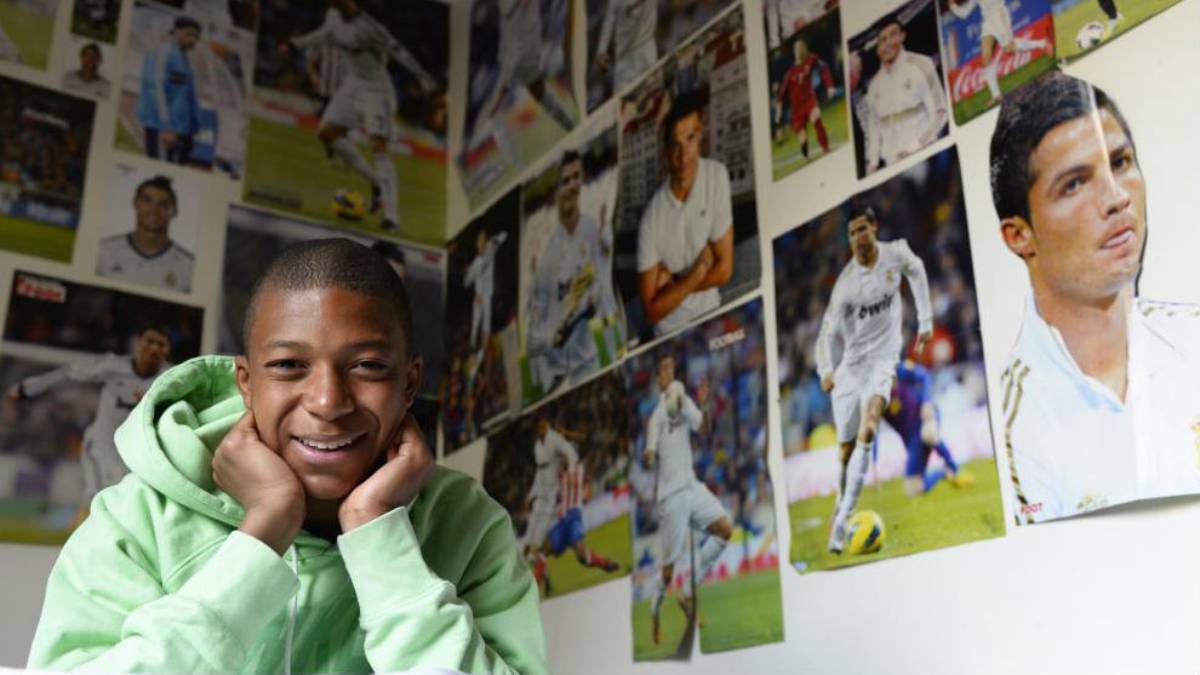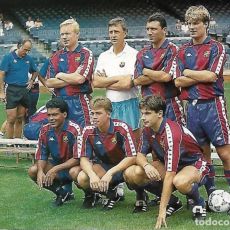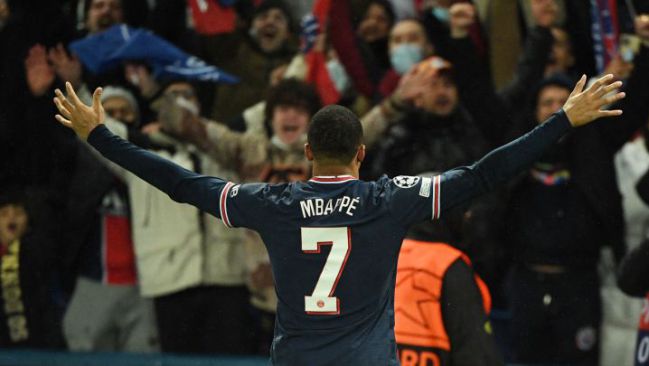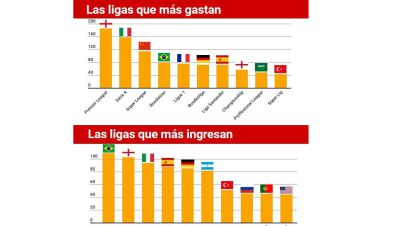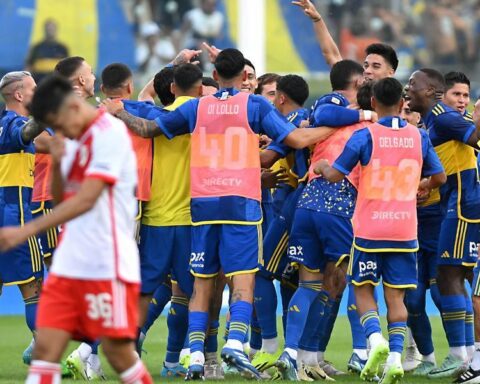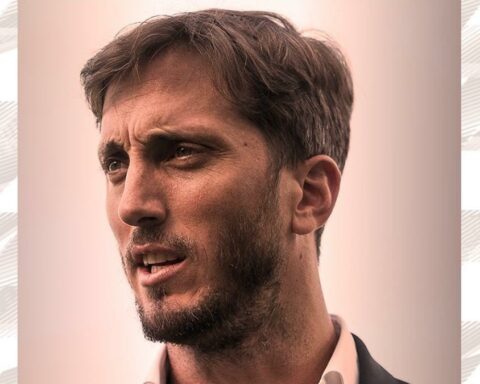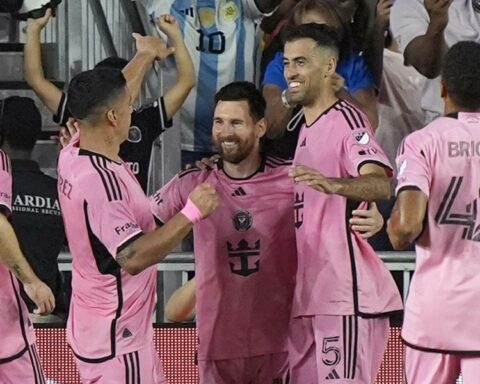A few days ago, following the Chelsea victory in the club world cup, a statistical data jumped out that shows the effects of one of the turning points that would culminate in the metamorphosis of what we now call ‘modern football’: Between 1960 and 1994, South America took 60% of the titles in which clubs or national teams participated different continents. From that year until today, South America has only achieved 20% of the tournaments played.
The product of this abysmal gap that clearly reflects the history of the competitions, is none other than the so-called bosman law, what comes out in the year 1995, and that changes the football scene worldwide at a stroke. This event is a legal conflict between the Belgian player Jean Marc Bosman and the Royal Football Club of Liègea club from the same country, and in which the footballer played.
Jean-Marc Bosman speaking to the media.
The history of the Bosman Law
The legal dispute arose as a result of the Bosman’s desire to sign for a French club, Dunkerke. Faced with this situation, and as was customary until then, the club that received the player had to pay the clause of his contract, even once it had ended. What’s more, until now, European players were considered non-EU in all foreign leagues, including those of the European Union, being subject to the number of chips restrictions of this nature.
Bosman embarked on a legal process that ultimately won, and that it would turn footballers into salaried employees with the same mobility rights as any other worker in another sector. Since then, European players do not occupy extra-community places in foreign leagues on the continent, and they have total freedom to negotiate from 6 months before the end of their contract.
A clear example, but one that is perhaps difficult to understand today, is that prior to this, Barça could not field Romario, Laudrup, Koeman and Stoichkov at the same time, since in the spanish league you could only play with 3 non-community players simultaneously out of the 4 allowed in the squad, and all of these were until said regulation.
instant impact
This legislative change within the world of football greatly accelerated the process of football evolution made a space designed for business, mercantilism and to be a tool designed largely for the production of capital, a fact that was noticed practically right after this event, leading to very marked consequences that continue to this day:
-A big gap between leagues from different countries: Many of the national competitions that until then were one step below the major leagues began to decline in favor of the giants of this sport, which would finally end up being 4 European leagues that are well above the rest. Such was the immediate impact that, in the summer market of 1996, the Spanish league went from having 92 foreigners to having 199, a figure that generated great attraction to television platforms, signing millionaire contracts never seen before.
This massive arrival of foreign players caused much of the talent of the time to leave the South American leagues and other minor tournaments in Europe, which ended up widening the gap between football on both continents that continues to this day.
One of the most demonstrative data is shown in the UEFA Champions League: Since the Bosman Law, a total of 26 editions have been played, and only once was it won by a team not belonging to one of the 4 major leagues (Spain, England , Italy and Germany). As a curiosity, in the previous 5 years, a Dutch team, a French team and a Yugoslav team won the trophy, something that has not been repeated.
-Many national teams have their talent abroad: Numerous countries with a great footballing tradition, but with less competitive leagues than the higher level ones, such as Belgium or France, have since then exported all their talent to other parts of the world. In fact, it is very difficult to see Belgian or French players with a relevant role in their national team, and playing in their domestic league, (with the exception of what happens with PSG).
A resounding fact that demonstrates this is the exodus of French players. In 1994, the French team called up 25 players who played in the league in this country for its official matches, while only 4 years later, in the 1998 World Cup, ‘Les Bleus? they only called up 10 players from their own league, much less than half.
-International templates and the accumulation of talent: From this moment on, the team concept changed a lot. The clubs went from being groups of players from the country, with some specific pieces signed from abroad, to being authentic multinational teams, such as Chelsea in 2000, which became the first team in history to field an eleven entirely made up of foreigners.
Another of the effects carried over to this day is the super squads full of stars, which accumulate talent in the formative stage, from countries that until then managed to retain the projects with the greatest potential in world football in their teams for a few more years, as was the case with the Argentine and Brazilian leagues, for example.
The weight of the Bosman Law in the Super League
Both concepts have an almost direct relationship, despite being separated by a quarter of a century. The Super League draws directly from the benefits offered by the Bosman Law. Since the aforementioned accumulation of talent is allowed, in a very small percentage of entities, these they have become super colossi with which you cannot compete in terms of impact or income, among many other things.
This total independence from the rest of football is what makes these great clubs in a position to demand a new change in the football order, something that would further divide each of the football estates into different classes. In short, the freedom of the market that was generated as a result of this resolution has allowed this gap to widen more and more in 26 years.
The Mbappé case is also a ‘son’ of the Bosman Law
It is exemplified by the ‘Mbappé Case’ because It is the most notorious in football today, but all those great transfers at zero cost are produced today thanks to that lawsuit. Since then, the player has a differential weight in terms of decision-making for his future, something that did not happen before, when the clubs were ‘owners’ of the footballer’s destiny.
Lewandowski, Ibrahimovic, Pirlo or Gullit are some of the stars that changed their shield at zero cost, being able to negotiate your new contract from 6 months prior to the end of the current one. Mbappe could be the next in the list of players who moved without a financial transfer involved.
The insurmountable gap with South America
The passing of the years falls like a slab in South American football. Season after season, the differences between the leagues belonging to CONMEBOL and those of UEFA increase. The ‘brain drain’ of South American football occurs at an increasingly younger age, and leaves a lower outlay in relation to the figures handled by European football.
This affects the quality of the competition, which becomes a spiral that feeds itself, and that makes his football less and less competitive. Leagues such as Argentina or Uruguay have been plunged into a notable decline, and that is reflected in the chests and showcases, to the point of becoming a worrying situation with a difficult solution.
Enlarge
Graphic extracted from another As.com article

